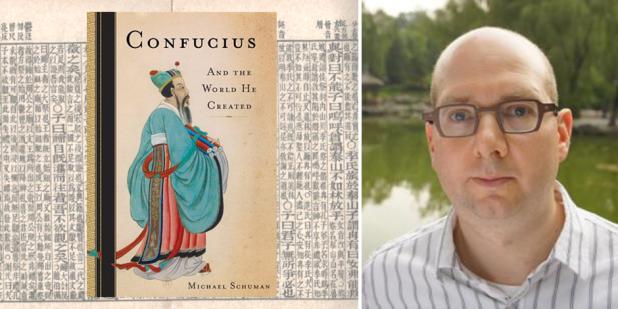Join us for a free one-day workshop for educators at the Japanese American National Museum, hosted by the USC U.S.-China Institute and the National Consortium for Teaching about Asia. This workshop will include a guided tour of the beloved exhibition Common Ground: The Heart of Community, slated to close permanently in January 2025. Following the tour, learn strategies for engaging students in the primary source artifacts, images, and documents found in JANM’s vast collection and discover classroom-ready resources to support teaching and learning about the Japanese American experience.
Confucius and the World He Created
The USC U.S.-China Institute hosts a conversation with author Michael Schuman to examine the unprecedented resurgence of Confucianism as a significant trend in Chinese politics and culture.
Where

Click here to watch a video of the presentation.
Confucius is perhaps the most important philosopher in history. Today, his teachings shape the daily lives of more than 1.6 billion people. Throughout East Asia, Confucius’s influence can be seen in everything from business practices and family relationships to educational standards and government policies. Even as western ideas from Christianity to Communism have bombarded the region, Confucius’s doctrine has endured as the foundation of East Asian culture. It is impossible to understand East Asia, journalist Michael Schuman demonstrates, without first engaging with Confucius and his vast legacy.
Confucius created a worldview that is in many respects distinct from, and in conflict with, Western culture. As Schuman shows, the way that East Asian companies are managed, how family members interact with each other, and how governments see their role in society all differ from the norm in the West due to Confucius’s lasting impact. Confucius has been credited with giving East Asia an advantage in today’s world, by instilling its people with a devotion to learning, and propelling the region’s economic progress. Still, the sage has also been highly controversial. For the past 100 years, East Asians have questioned if the region can become truly modern while Confucius remains so entrenched in society. He has been criticized for causing the inequality of women, promoting authoritarian regimes, and suppressing human rights.
Despite these debates, East Asians today are turning to Confucius to help them solve the ills of modern life more than they have in a century. As a wealthy and increasingly powerful Asia rises on the world stage, Confucius, too, will command a more prominent place in global culture.
Touching on philosophy, history, and current affairs, Confucius tells the vivid, dramatic story of the enigmatic philosopher whose ideas remain at the heart of East Asian civilization.
About the Author

Featured Articles
Please join us for the Grad Mixer! Hosted by USC Annenberg Office of International Affairs, Enjoy food, drink and conversation with fellow students across USC Annenberg. Graduate students from any field are welcome to join, so it is a great opportunity to meet fellow students with IR/foreign policy-related research topics and interests.
RSVP link: https://forms.gle/1zer188RE9dCS6Ho6
Events
Hosted by USC Annenberg Office of International Affairs, enjoy food, drink and conversation with fellow international students.
Join us for an in-person conversation on Thursday, November 7th at 4pm with author David M. Lampton as he discusses his new book, Living U.S.-China Relations: From Cold War to Cold War. The book examines the history of U.S.-China relations across eight U.S. presidential administrations.




